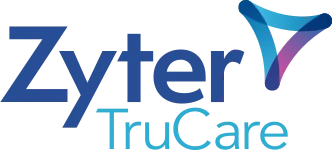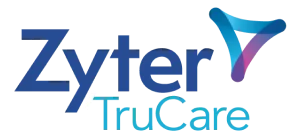The Challenge
A growing number of patients at the primary care and specialty clinics affiliated with a U.S.-based healthcare system were “no-shows” for their scheduled appointments. Missed appointments could put patients who need monitoring of chronic conditions, especially heart-related diseases, at higher risk of poor outcomes. The COVID-19 pandemic was yet another factor that caused some patients, especially the at-risk Medicare-age population, to purposely avoid in-person appointments at the clinics.
Physicians at the hospital’s cardiac clinic, in particular, needed a better way to monitor their patients’ chronic heart conditions between appointments, as well as provide improved quality of care at in-person appointments. Although cardiac patients were instructed to take daily blood pressure readings at home, write down the results and bring them to their appointment, the possibility of patient errors, or even misplacing the data, could make it difficult for physicians to adequately assess patients.
In addition to the clinics, the extremely busy downtown regional medical center in this system also needed a solution for turning around the improper utilization of its Emergency Room (ER) while still improving access to care for patients with minor health issues and underinsured patients. To solve both challenges, Zyter was engaged by the healthcare system to implement Zyter Remote Patient Monitoring™ (RPM) at multiple hospital clinics, and Zyter Telehealth™ to support improved utilization of the ER at the regional medical center. As both solutions reside on the robust ZyterHealth™ digital health platform, additional capabilities are available including health insights and analytics, population health management, care team services and third-party integrations.

The Approach
Zyter RPM is being used to monitor the well-being and safety of patients who can manage their own chronic conditions or are recovering from surgery at home. Deployed at the specialty clinics, clinicians can now use LTE-enabled devices for monitoring cardiac patients’ blood pressure, glucose levels, and weight. Physiological data is transmitted securely from the device to the physician’s office. As a result, physicians are assured of having real-time, accurate readings to help them make more informed decisions about patient care.
For hospitals and clinics, Zyter RPM is a comprehensive, integrated and flexible solution that works with a hospital’s existing systems and clinical workflows. During the preliminary proof of concept of Zyter RPM at the clinics, the physicians and administrators made some specific requests to the Zyter technical team for modifications. For example, they wanted to modify the RPM workflow with new user roles to allow access to RPM patient data for two dedicated clinical support assistants. The Zyter team also unlocked certain features of Zyter RPM to allow the clinics’ care navigators to access both clinical data and administrative data through a single log-in – saving time and making their workflow more efficient. The Zyter technical team completed these and other modifications in a matter of approximately two weeks for each one.
Today, physicians at the clinics will recommend Zyter RPM to patients with chronic conditions during in-person visits and they can immediately enroll the patient and give the appropriate LTE-enabled RPM devices to the patient to take home. If a device is not available at that time, Zyter will ship it to the patient’s home. Zyter technical support, if needed, is just a phone call away. The clinics’ Medicare and Medicare Advantage patients are using the Zyter RPM solution at no cost. In the first few months, over 40 patients were enrolled, with a projection of 500 to 1,000 by the end of the year.
Once the patients start using the Zyter RPM devices, two clinical support assistants access, review, and track the patient data captured and transmitted from each device on the Zyter RPM dashboard at the clinic. If a patient’s physiological data falls out of the recommended range, the clinical assistants alert the physician and contact the patient to come in for an appointment. Eventually, the Zyter RPM solution will be integrated with the healthcare system’s Epic electronic health record (EHR) system. For now, physicians enter any orders or referrals for RPM devices into Epic and their clinical assistants follow up with patients in the Zyter solution. This process takes the administrative burden off of busy hospital physicians while still providing quality care through Zyter RPM.
Improving Access & Engagement with Zyter Telehealth™
As an expansion of Zyter RPM at the clinics, Zyter Telehealth™ virtual visit capabilities as well as virtual smart exams and patient triage have been made accessible through the website of the healthcare system’s downtown regional medical center. Designed to relieve the improper utilization of the center’s ER, Zyter Telehealth’s “tele-urgent care” gives patients accessibility to virtual urgent care visits for nonlife-threatening medical conditions, such as the flu, earache, and allergies.
Zyter Telehealth is embedded in the hospital’s website, so patients simply click on a link to “Telehealth” where they access a PayPal portal to make a cash payment. In the future, Zyter can modify this feature to accept insurance co-pays. Once patients complete the payment information, the system sends a text with a link to confirm the registration. Next, the patient completes a virtual exam by checking their symptoms from an AI-generated list. If their symptoms are non-emergent, that action puts the patient in the queue to be seen in a virtual visit. Physicians can review the list of patients and their symptoms in the Zyter application before each virtual session. The patient then receives a text when the physician is ready for the virtual visit and a link that opens the Web-based video chat. Patients do not need to download a specific mobile app or create a user account, making it an easy and seamless experience right from the start.
As a result, the regional medical center has freed up ER clinical staff to treat true emergencies, as well as potentially lower the COVID-19 risk by reducing the number of patients coming in for non-emergent treatment. Plus, Zyter Telehealth enables the hospital to offer affordable care to underinsured patient populations in their region.
The Results
With Zyter RPM and Zyter Telehealth, this healthcare system has taken a proactive approach to treating chronic conditions and extending telehealth services, reducing the burden on physicians and other clinical resources while improving care across all patient populations.
Other benefits of the Zyter solutions include:
Other benefits of the Zyter solutions include:
- Expanded access to care and increased patient engagement for this U.S. healthcare system
- Improved the utilization of the regional medical center’s ER thanks to virtual patient triage and virtual visits for non-emergent conditions through Zyter Telehealth
- Improved quality of care and patient outcomes thanks to early intervention of possible adverse events
- Improved patient satisfaction and patient/provider relationships
- Reduced appointment no-shows by creating a daily touchpoint with patients through RPM
- Access to Zyter’s population health management platform that unites disparate data sources to provide a 360 degree longitudinal view of each member, making it easy to identify opportunities to coordinate and improve care.
- Made it possible for patients at higher risk for COVID-19 to monitor chronic conditions at home and reducing the number of in-person visits
- Ability to apply predictive analytics to data from telehealth and RPM applications to uncover new value-based insights
- Access to additional capabilities including care team services and third-party integrations
In the near future, the hospital clinics will take advantage of the ability of Zyter RPM to integrate with the current patient EHR system to enhance collaboration among patients, physicians, and care team members. Additionally, the clinics will adopt the telehealth capabilities of Zyter’s RPM solution to enable virtual visits with patients at home. Down the road, Zyter’s RPM and telehealth solutions will also support new efficiencies and workflows, such as support for value-based care, as the healthcare system evolves and grows in the future.


























